7 Reasons Why The UK Needs More Recycling Awareness
Whichever way we choose to cut it, landfill waste has become an enormous problem all over the world. While we are all generally encouraged to 'do our bit', it's notable that not everyone in the UK recycles their waste, or is even wise that they're not recycling properly. It’s estimated that UK households create 26 million tonnes of waste each year, of which only 12 million is recycled, the other 14 million goes to landfill.
There should be a government-sanctioned advertisement that pops up on our TV screens frequently and annoyingly, to give people the information they need to not only encourage recycling but to do it more effectively. It’s believed that as much as 80 percent of the things we throw away could be recycled.
Here are the 7 reasons why the UK needs more recycling awareness.
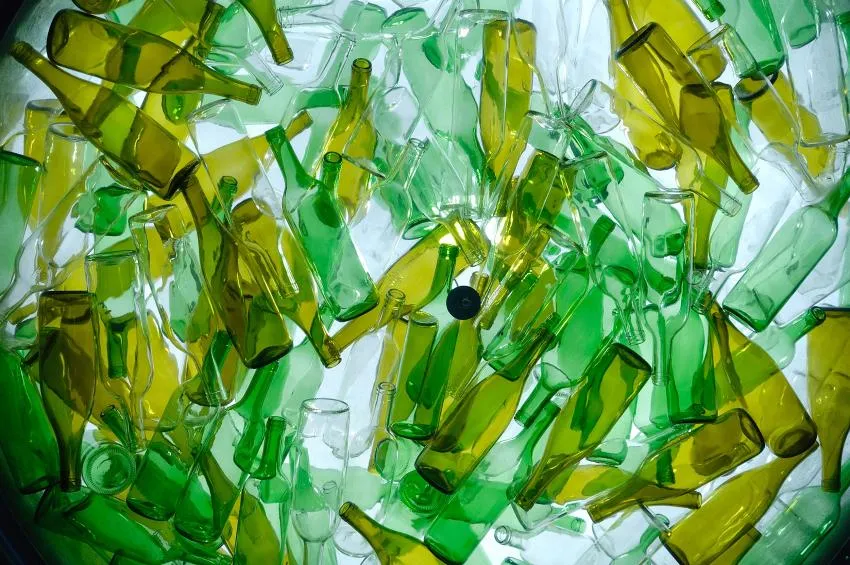
1. Only 50% of UK Glass is recycled
“The UK has more than 50,000 bottle banks, and each bank is capable of holding 3,000 bottles, yet 5 out of 6 glass bottles are thrown away”. Glass has recently earned its own particular bin in some areas of the UK because the broken glass in a normal recycling bin tends to contaminate other products' usability. But just tossing in a pasta jar or beer bottle isn't enough.
Only around 50% of UK glass is actually recycled when in theory all glass is 100% recyclable over and over again. Unfortunately, glass doesn't decompose either, so it puts strain on landfills when it gets wasted.
A simple advert demonstrating the need to rinse out contaminated content, remove labels where possible, and make sure the glass isn't broken when you throw it away, could make a big difference in the nations' other unusable 50%. For instance: recycling just one glass bottle is enough to power a laptop for thirty minutes!
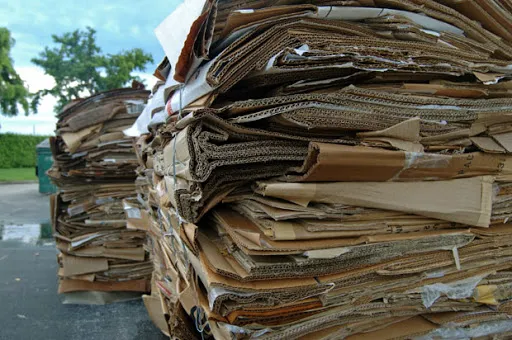
2: People in the UK use 12.5 Mn tonnes of Paper and cardboard
“4 billion trees are cut down every year for paper. That’s one percent of the Amazon rainforest- every single year”. In the UK alone, we use 12.5 million tonnes of paper every year, which I’m given to understand equates to a forest the size of Wales.
We can do so much more to save on paper waste, simply by lowering the demand. People may think they are being good by throwing away takeaway pizza boxes and coffee cups: they're cardboard, right?
But no, contaminated or dirty pizza boxes cannot be reused, which is a shame for their size, and takeaway coffee cups aren't reusable at all, as they have a layer of polyurethane, which makes them waterproof in the first place.
A simple commercial explaining this would save tonnes of unnecessary landfill waste. If there is one item from a bin that is contaminated, the whole bin can be classed as contaminated and made landfill waste.
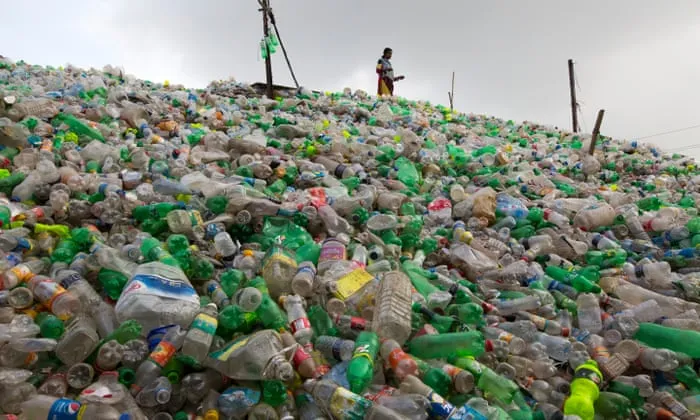
3. About 8 Mn tonnes of plastic is disposed to the ocean every year and only 45% is recycled
It’s no secret that plastic pollution has increased exponentially in the latter part of a century. We now use 20 times more plastic than we did 50 years ago. 8 million tonnes of plastic end up in the oceans every year, killing millions of sea creatures, seemingly with no end in sight, as it takes 500 years for plastic to fully decompose; even then creating dangerous “micro-plastics” which sea creatures can, and do, ingest further.
While that’s not entirely the fault of the UK, interestingly we only ever recycle an average of 45 percent of our plastics. Plastic rubbish in the countryside is even killing thousands of land animals. A commercial demonstrating some facts and figures about single-use carrier bags could really carry some weight into changing the nations’ wasteful psyche.
Supermarkets in particular would earn my respect by banning plastic carrier bags altogether, and by hanging signs on the door encouraging people to bring their own; or sell bags for life just inside the door. The average UK household throws away 40kg of plastic each year, and it has to stop. Especially when recycling just 5 plastic bottles can make a t-shirt, and 25 can make an adult jacket.
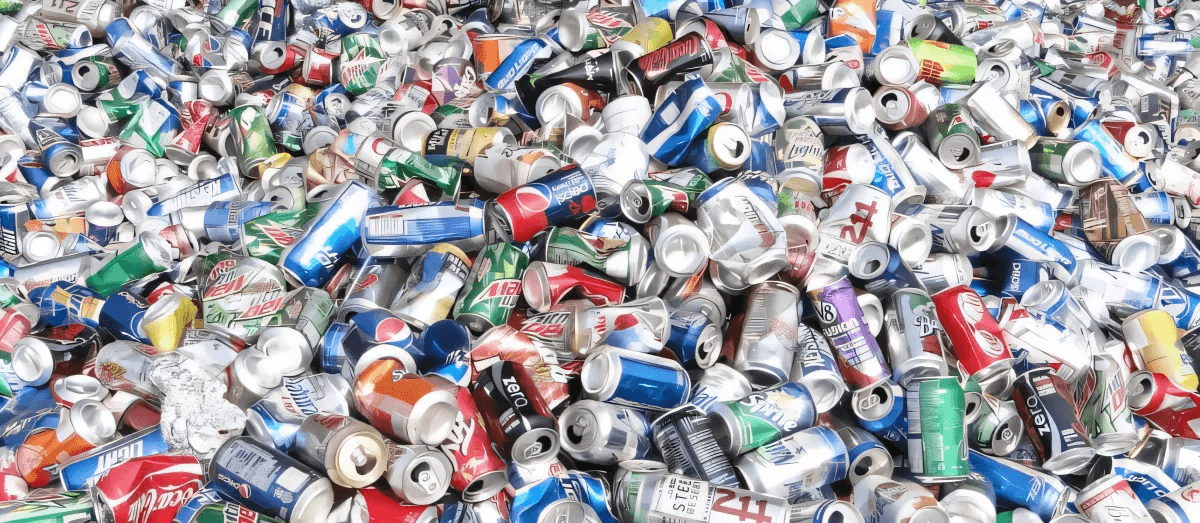
4. A single UK household disposes of 600 Aluminium and tin cans every year
Aluminum cans are a great source of packaging. Incredibly versatile to shape, infinitely reusable without losing any of its' quality, aluminum is a very efficient food storage container material. It can preserve its' contents for months or even years. Yet despite this, not everyone recycles their cans properly (if at all), with 80 million UK cans being rejected and sent to landfills every day.
It's estimated that each UK household uses around 600 cans every year, which with 27 million households, we use 16.2 billion a year. Only around 72 percent of cans sold each year get recycled, which isn't bad but there's definitely room for improvement.
If all cans were recycled we'd need 14 million fewer dustbins. Again, an advert showing these statistics, and demonstrating how to rinse cans out, potentially remove labels and crush cans at home (where possible), would help greatly to bring that 72 percent up to the desired 100.
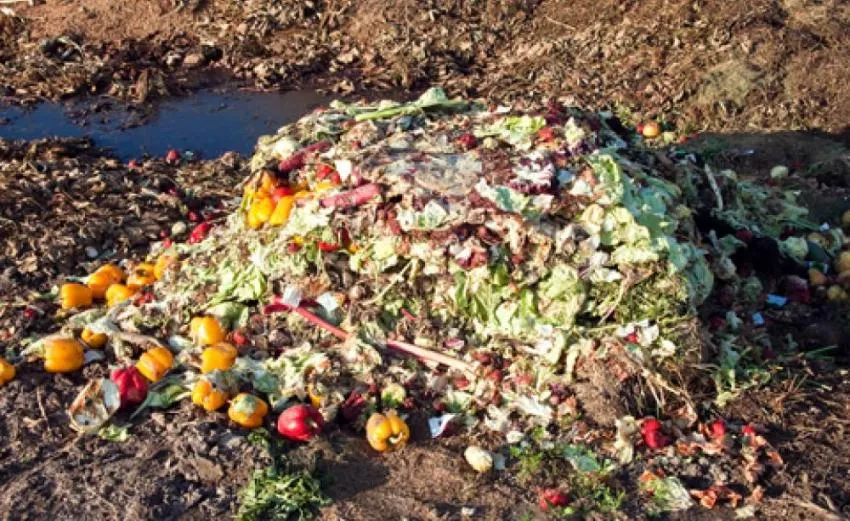
5. Food waste and cooking oil are the leading contributors to water pollution in the UK
We all throw away food that we've overestimated that we were going to eat, or that has gone past its' sell-by-date, or use-by-date. That bread starting to feel a little bit hard? "Throw it away, get another one". Those bananas looking a bit brown? "Toss them away we'll get some more when we go shopping".
Sausages one day out-of-date? "Sling 'em". Sound familiar? It's thought that each household throws away 20 percent of all food purchased, which makes for some truly jaw-dropping statistics when applied nationwide.
In the UK alone every day we throw away:
- 1.4 million bananas
- 3 million unopened yogurts
- 600,000 eggs
- 2 million sausages
- 20 million slices of bread
The UK alone throws away 7 million tonnes of food waste a year, 250,000 of which is still perfectly edible. At least 50 percent could be composted, even if it is inedible, which would contribute greatly to reducing our c02 emissions from unnecessary landfills.
Waste cooking oil is one of the leading contributors to water pollution, with just one liter being able to pollute 1 million liters of drinking water. To me that's a shocking statistic that I've had to find for myself, so why isn't it common knowledge when it's so preventable? We need to be informed of these things for future prevention.
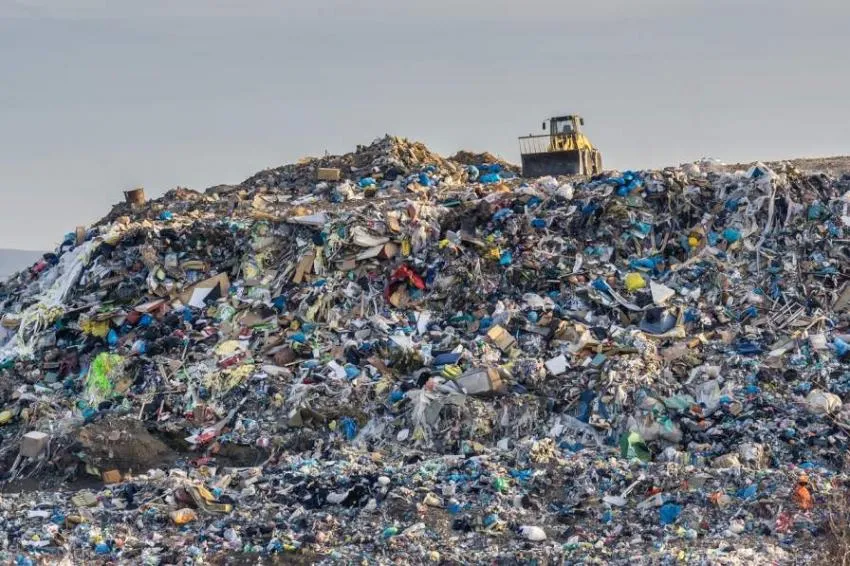
6. The landfill site and the rubbish islands in the UK are 3 times the size of France
The public, in general, needs to be shaken out of recycling apathy. While normal Freeview TV in the UK is currently riddled with hard-hitting adverts with scenes of poverty and cancer to get people to pay to charities, another one is needed for this; given the urgency and benefits to everyone. The best part is: it’s not asking anyone to part with any money.
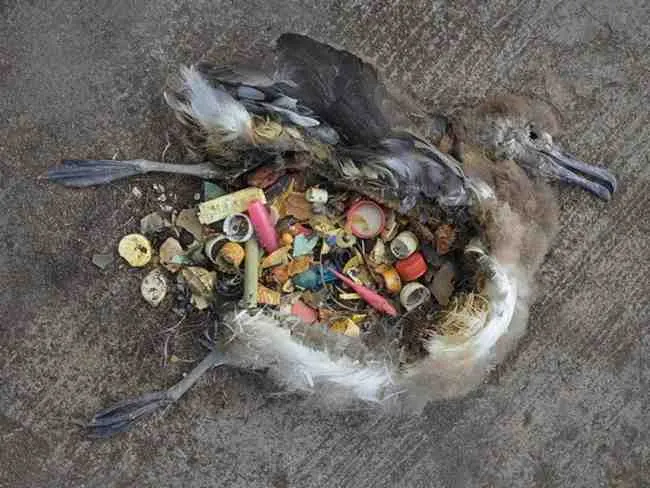
As macabre as it sounds, the nation needs to see these dead creatures affected by plastic. Woodland animals eat rubbish from roadsides, making them ill, and birds eat micro-plastics and getting caught in plastic containers in ponds and oceans. All manner of fish and turtles, seals and dolphins caught in nets, debris and detritus in the Great Pacific Garbage Patch, and the other vast swathes of ocean rubbish islands that are 3 times the size of France.
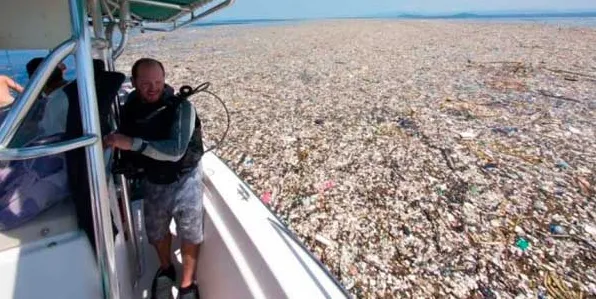
Something needs to hit home and call us out on our profligacy, to slow the negative effects on our planet. The UK isn't solely responsible globally, but as a leading so-called 'developed nation, we can do more to set an example and not dump all our waste on poorer nations like Turkey.
The true figures of our yearly landfill waste are staggering, and people need to know that if they recycle everything they can in their kitchen recycling bins they could save enough energy to power a TV for 6 months. Speaking of TV’s: the UK throws away 2 million in landfills every year when they are accepted at most charities and recycling centers.
7. Other daily practices in the UK that needs change and promote recycling
There are so many simple steps we can take to avoid waste. If you get a newspaper regularly, why not subscribe to the app version or watch the news on television? 90 percent of Sunday newspapers are thrown away in Britain, that’s the equivalent of half a million trees. If you get coffee from a machine, why not use your own plastic reusable cup?
Invest in a second kitchen bin purely for recyclables; buy fruit and veg that aren't in cellophane; only buy food you know you'll eat; use recycled paper; buy eco-friendly cleaning products. We can opt for email bills and receipts where possible, use the notepad on our smart devices, or a whiteboard in the kitchen at home so we don't waste paper. The list is endless.
Turn off the tap while brushing your teeth to save liters of drinking water. Invest in a composter and reduce your food waste by 50 percent. Those plastic local takeaway boxes? Use them for your sandwiches and never buy sandwich bags again. And for the love of God: Use your own reusable shopping bags.
Supermarkets can do their bit by hiking up the prices of printer paper, sketchbooks, and jotters to discourage whimsical sales. They can also ban single-use plastic bags.
While not everyone may care about their waste habits, it may well be that many people just simply aren’t aware of the facts and figures of waste, and are willing to help in whatever small way they can. All we need are a few commercials to raise awareness and change mindsets: the world would start seeing the benefits overnight.
Opinions and Perspectives
The food waste statistics are shocking. We need better meal planning education.
We should have recycling targets for each household like some other countries do.
I've started buying loose fruit and veg. More shops need to offer this option.
Just learned about micro-plastics from this article. That's scary stuff.
Started composting last year and my garden has never looked better. Win-win situation.
Finding it hard to believe we throw away that many unopened yogurts. Such a waste!
I think we need mandatory recycling education for all ages, not just school children.
The article mentions whiteboard use which is great but what about digital note-taking apps?
More businesses need to accept reusable cups and containers. Some still refuse due to health and safety.
These statistics about plastic in the ocean are heartbreaking. Those poor sea creatures.
Anyone else struggling with recycling in rented accommodation? Our bins are always overflowing.
I've noticed more places offering paper straws now. Small step but it's something.
The takeaway box tip is brilliant. I've started keeping and reusing mine too.
Has anyone tried those zero-waste shops? They're great but we need more of them.
Local councils need to standardize their recycling rules. It's so confusing when you move areas.
The glass recycling stats are disappointing. It's literally infinitely recyclable!
Maybe we need recycling rewards schemes like they have in some other countries.
The article mentions eco-friendly cleaning products but they're so expensive compared to regular ones.
We definitely need more education about contamination. One wrong item can ruin a whole bin of recyclables.
Those newspaper statistics are crazy. I switched to digital subscriptions last year.
Something as simple as crushing cans could make such a difference to recycling efficiency.
Why aren't supermarkets required to donate unsold food to charities? So much waste.
The food waste numbers make me sick. We need better planning and storage education.
I'd love to see more repair cafes where people can fix things instead of throwing them away.
The 500-year decomposition time for plastic is terrifying. What are we leaving for future generations?
Just learned that broken glass contaminated other recyclables. No wonder so much ends up in landfill.
I've started refusing receipts whenever possible. Such a simple way to reduce paper waste.
The fact that we're shipping our waste to poorer countries like Turkey is shameful. We need to deal with it ourselves.
My kids learned about recycling at school and now they're the ones policing our household waste!
Anyone else noticed how much packaging comes with online shopping? It's ridiculous.
Those aluminum can statistics are crazy. How hard is it to rinse and recycle a can?
I agree about community composting! Our local council just started one and it's brilliant.
The article mentions composting but many of us don't have gardens. We need community composting schemes.
Sometimes I think we focus too much on individual actions when big corporations are the main polluters.
The statistic about TVs is shocking. 2 million in landfills? Most charity shops would take those.
Has anyone tried those apps that help reduce food waste by connecting you with local shops selling surplus food?
What about apartment buildings though? Our recycling facilities are terrible and landlords don't seem to care.
I work in retail and the amount of packaging waste is criminal. We need stricter regulations.
The comparison between Wales and paper waste really puts things in perspective. We need to go digital wherever possible.
True about supermarkets! I've started shopping at local markets where I can use my own containers.
I find it frustrating that supermarkets still wrap everything in plastic. We need change at the corporate level too.
In my area they've started fining people for incorrect recycling. Harsh maybe, but necessary.
Those plastic islands in the ocean being three times the size of France is mind-boggling. We can't keep ignoring this.
Start small! I began by just properly sorting my recycling and it becomes second nature pretty quickly.
Looking at these numbers makes me feel overwhelmed. Where do we even start making a difference?
The article mentions TV adverts but I think social media campaigns would be more effective for reaching younger people.
I live in an area without glass recycling bins and it drives me crazy. We need better infrastructure.
What really gets me is the cooking oil statistic. One liter polluting a million liters of water? That's terrifying.
I'm confused about pizza boxes. I always thought they were recyclable. No wonder our recycling efforts aren't as effective as they could be.
You're right about freezing bananas! I've been doing this for months and it's great for baking too.
The food waste numbers are absolutely staggering. 1.4 million bananas thrown away daily? I'm going to start freezing mine for smoothies.
Actually, I think the 10p charge for plastic bags has made a huge difference. I always keep bags in my car now.
I've started using a reusable coffee cup and it makes such a difference. No more guilt about those disposable cups adding to landfill.
These statistics about paper waste are eye-opening. A forest the size of Wales every year? We really need to do better.
I had no idea we only recycle 50% of glass in the UK. That's shocking when it's 100% recyclable!
